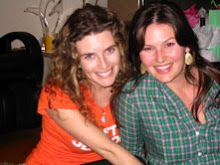The Problem...
Overfishing—catching fish faster than they can reproduce—is a huge global issue.
As the Marine Bio Organization says:
"Fish currently supply the greatest percentage of the world's protein consumed by humans. This fact may soon change, however, given that most of the world's major fisheries are being fished at levels above their maximum sustainable yield; and many regions are severely overfished. More than 70% of the world's fisheries are overexploited, which threatens the health, economy, and livelihoods of communities all over the world. The global fishing fleet is estimated to be 250% larger than needed to catch what the ocean can sustainably produce."
"Once it seemed the ocean would supply an endless bounty of seafood. Today, we're discovering its limits. Between 1950 and 1994, ocean fishermen increased their catch 400% by doubling the number of boats and using more effective fishing gear. In 1989, the world's catch leveled off at just over 82 million metric tons of fish per year. That's all the ocean can produce. Sending more boats won't help us catch more fish."
The Complications...
Overfishing includes Bycatching...
Besides the fact that humans are consuming lots of fish, overfishing is made even worse by a practice called BYCATCHING--the throwing away of fish that are caught. Yes, they catch and kill fish that never even make it to the table. Worldwide, fisheries throw away 25% of their catch. According to the United Nations Food and Agriculture Organization, one in four animals caught in fishing gear dies as bycatch—unwanted or unintentional catch.
The Monterey Bay Aquarium:
"Tons of fish are tossed out, dead or dying, because they're not the kind the fishermen wanted to catch. The discarded animals may have no market value, or there may be no room on the boat to bring them to shore. Or the bycatch may be a marketable species, but too small to sell. Sometimes, fish are discarded because the fishermen lack the proper permits to land them. Dolphins, sea turtles, seals and whales all get caught by accident in fishing gear and drown.
Sharks, swordfish and red snapper are just a few of the fishes harmed by accidental kills. Bycatch often takes young fish that could rebuild depleted populations if they were allowed to grow up and breed. "
Overfishing damages the Ecosystem...
Once you take a group of fish out of the water, the whole ecosystem is thrown out of whack—it doesn’t just affect that particular species of fish, but all they interact with, including their predators and their prey. (For example: remove nearly all the trout, the carp take over and make it near impossible for the trout to re-establish a breeding population.)
Overfishing decimates the ocean...
Fish and shellfish need habitat—places to hide, feed and breed. Many kinds of fish and shellfish live and breed along the ocean floor. In order to catch these fish, including scallops, fisheries use types of fishing gear that crush life on the seafloor and damage the places where fish feed and breed. Some scientists believe that fishing with this gear harms the ocean more than any other human activity. Once the living seafloor is damaged, it can take centuries to grow back. Near Australia, bottom trawlers have pulled up and destroyed six-foot-tall gorgonians (coldwater coral) that were at least 700 years old.
Okay, I want to help….But I still love my Sushi…..
We know, we know. Fish is an amazing source of protein and essential acids. You don’t have to give it up—you just have to be smarter about what TYPES of fish you are eating. Click here for a guide that lists every type of fish either as Best, Good Alternative or Avoid. They even have a pocket size version you can print and keep with you when you grocery shop or go to a restaurant. Now you can eat your sushi with a clear conscience.
Something interesting to notice is that fish from certain regions may be a great environmental choice, while that same fish from another region is one to avoid. When you’re at your market or at a restaurant, it never hurts to ask if it’s Wild Alaskan Salmon (Good) you’re eating or Atlantic Salmon (Avoid).
When buying fish look for the MSC stamp of approval!
The Marine Stewardship Council (http://eng.msc.org/) awards is stamp of approval to environmentally sustainable fisheries around the world. Sustainable fisheries are healthy, well-managed and do not cause harm to the ocean’s ecosystems. For a list of where you can buy fish which came from sustainable fisheries, click here. You'd be surprised--it's not just random hippie grocery stores. Even Wal-Mart and Costco have sustainable offerings.
So start being a more careful consumer…before the phrase “plenty of fish in the sea” becomes as outdated as any word ending in “-izzle”……
Anything else I can do?
The Monterey Bay Aquarium has an amazing seafood watch program you can join online. By joining, you commit to avoiding overfished species, to spreading the word and to encouraging restaurants to avoid overfished species (there are specifics at the websites including information cards for you to leave at restaurants and markets.
In addition, by joining, you give them leverage power when they deal with large seafood buyers such as supermarkets as they try to get certain overfished species banned. They give the example of dolphin-safe tuna. Back in the day, dolphins were dying as a result of tuna fishing. Once the environment groups put enough pressure on the large buyers of tuna, however, un-dolphin-safe tuna stopped being bought, and eventually, became obsolete. Even if you, as a consumer, WANTED to buy un-dolphin-safe tuna today, you could not—there’s nowhere to buy it (and now it has also been outlawed). The Seafood Watch program is currently negotiating so that similar restrictions could be made on other fish that are in danger of being over-harvested.
For more info, click here.




